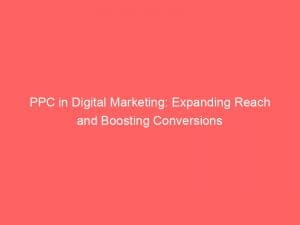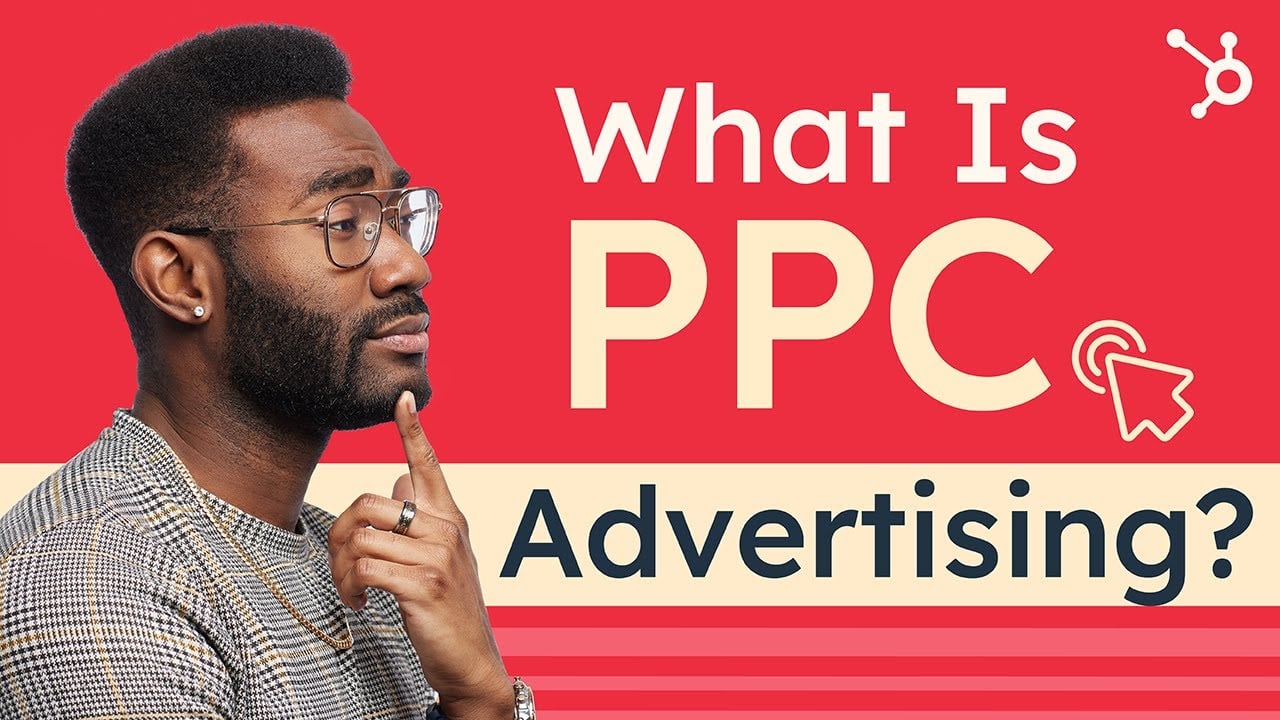- ppc in digital marketing
- Introduction To PPC in Digital Marketing
- PPC Ad Placement and Platforms
- Factors Determining the Success of PPC Ads
- Overview of Google Ads in PPC Advertising
- Key Steps in PPC Marketing
- Continuous Growth and Refinement of PPC Keyword List
- Importance of Regular Management and Optimization in PPC Campaigns
- Strategies for Improving Relevancy and Reducing Wasted Spend in PPC Marketing
In today’s fast-paced digital world, businesses are constantly seeking new ways to stand out from the crowd and reach their target audience effectively. With the rise of online advertising, Pay-Per-Click (PPC) has become a game-changer in the world of digitalmarketing.
Imagine being able to pay only for the results you get – well, that’s exactly what PPC offers. By strategically bidding on keywords and refining ad quality, businesses can maximize the impact of their advertising budget.
In this article, we will delve into the world of PPC, its benefits, and how to create successful campaigns that will leave your competitors in the dust.
| Item | Details |
|---|---|
| Topic | PPC in Digital Marketing: Expanding Reach and Boosting Conversions |
| Category | Ads |
| Key takeaway | In today's fast-paced digital world, businesses are constantly seeking new ways to stand out from the crowd and reach their target audience effectively. |
| Last updated | December 27, 2025 |
digital-marketing">ppc in digital marketing
PPC in digital marketing refers to the pay-per-click model of advertising where advertisers pay for each click on their ads. This advertising method is widely used on search engines, websites, and social media platforms.
The success of PPC ads is determined by their relevance and quality, which can lead to higher positioning and lower costs. Google Ads is the most popular PPC advertising system, allowing businesses to place ads on Google’s search engine.
Key steps in PPC marketing include bidding on relevant keywords, focusing on landing page quality, improving Quality Score, and creating enticing ad copy. Continuous refinement of the PPC keyword list, management and optimization of campaigns, and the use of negative keywords are important factors in achieving success.
PPC campaigns can be combined with SEO strategies for optimal results. Overall, PPC advertising offers cost-effectiveness, fast results, control and testing options, and the ability to target ideal customers.Key Points:
- PPC in digital marketing involves advertisers paying for each click on their ads
- The success of PPC ads depends on their relevance and quality
- Google Ads is the most popular PPC advertising system
- Key steps in PPC marketing include:
- Bidding on keywords
- Focusing on landing page quality
- Improving Quality Score
- Creating enticing ad copy
- Continuous refinement of the PPC keyword list, campaign management and optimization, and the use of negative keywords are important factors for success
- PPC campaigns can be combined with SEO strategies for optimal results
Sources
https://blog.hubspot.com/marketing/ppc
https://www.wordstream.com/ppc
https://digitalmarketinginstitute.com/blog/what-is-ppc-marketing
https://www.forbes.com/advisor/business/ppc-marketing-guide/
Check this out:
? Pro Tips:
6. Utilize ad extensions like sitelinks, callouts, and structured snippets to provide additional information and improve the visibility of your PPC ads.
7. Use ad scheduling to display your ads during peak hours or when your target audience is most likely to be online.
8. Implement remarketing campaigns to target users who have previously visited your website, increasing the chances of conversion.
9. Continuously monitor and analyze your competitors’ PPC campaigns to identify new opportunities and stay ahead in the market.
10. Experiment with different ad formats, such as video or interactive ads, to stand out from the competition and engage your audience.
Introduction To PPC in Digital Marketing
PPC (pay-per-click) has become a popular and effective model of digital advertising, providing businesses the ability to reach their target audience and gain visibility online. In this article, we will explore the world of PPC in digital marketing, its benefits, and how to maximize its potential.
This post updated with new ad network performance data.
PPC Ad Placement and Platforms
PPC ads have the flexibility to appear across various online platforms, including search engines, websites, and social media. This wide range of display options allows businesses to target their audience effectively and increase their chances of conversions.
Some popular platforms for PPC ad placement include Google Ads, Bing Ads, Facebook Ads, and AdRoll.
Factors Determining the Success of PPC Ads
The success of PPC ads is determined by their relevance and quality. Advertisers must ensure that their ads align with the search intent of their target audience.
Relevance is crucial to achieving higher positioning and attracting the right customers. Quality plays a significant role through factors such as ad copy, landing page experience, and overall user experience.
Overview of Google Ads in PPC Advertising
Google Ads is the go-to platform for PPC advertising, offering businesses a comprehensive and powerful toolkit to launch their campaigns. With Google Ads, businesses can bid on relevant keywords to display their ads on Google’s search engine result pages (SERPs).
They can also create highly engaging ad copy and improve their Quality Score, a metric that affects ad positioning and costs.
Key Steps in PPC Marketing
To excel in PPC marketing, businesses must follow a series of key steps:
Continuous Growth and Refinement of PPC Keyword List
The success of PPC campaigns heavily relies on continually expanding and refining the keyword list. As markets and consumer behavior evolve, businesses must adapt by adding new relevant keywords and removing underperforming ones.
Regular keyword analysis and optimization are crucial for staying ahead of the competition and maximizing campaign performance.
Importance of Regular Management and Optimization in PPC Campaigns
Once PPC campaigns are launched, they require ongoing management and optimization. This involves monitoring the performance of ads, adjusting keywords and bids, and enhancing overall campaign effectiveness.
Regularly reviewing and updating campaigns is essential for identifying areas that need improvement and implementing necessary changes to achieve better results.
Strategies for Improving Relevancy and Reducing Wasted Spend in PPC Marketing
To optimize PPC marketing, businesses should consider the following strategies:
Landing page optimization is an essential step in maximizing the effectiveness of PPC campaigns.
In summary, PPC in digital marketing offers businesses a cost-effective way to expand their reach, boost conversions, and target ideal customers. With platforms like Google Ads, businesses have the tools and resources to create highly targeted ads and optimize their campaigns for optimal results.
By following key steps and continuously refining their PPC keyword list, businesses can stay ahead in the ever-evolving digital landscape. Regular management, optimization, and strategic considerations will lead to successful PPC campaigns and increased return on investment.
Advertising Platform for Marketers • Buy Traffic • Native Ad Network • Self-Serve DSP Platform











